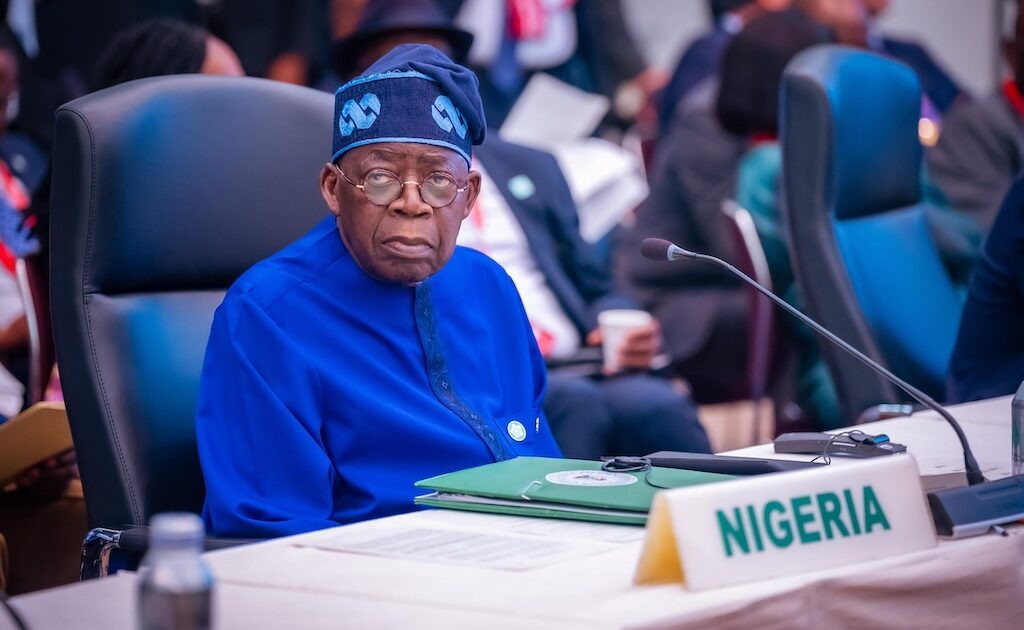The governors of Nigeria’s North-East region have formally requested President Bola Tinubu to reinstate oil exploration activities in the Kolmani and Lake Chad basins. This appeal, presented by Borno State Governor Babagana Zulum during a meeting with the President, underscores the region’s desire to leverage its untapped energy resources for economic revitalization, especially in the face of prolonged insurgency. The resumption of exploration in these areas aligns with Nigeria’s broader objective of increasing crude oil production to meet its OPEC quota and diversify its sources beyond the Niger Delta. The Kolmani field, with its estimated one billion barrels of oil reserves, holds significant promise for the nation’s energy sector and the North-East’s economic prospects. Similarly, the Lake Chad basin, despite past security challenges, represents another potential avenue for boosting oil output and driving regional development.
The governors’ call for renewed oil exploration is intertwined with their plea for enhanced security measures in the region. They emphasized the need for continued military operations across strategic forest zones and former insurgent strongholds, including Sambisa Game Reserve, Mandara Hills, and the Tumbus of Lake Chad. Recognizing the crucial role of security in facilitating development initiatives, the governors urged increased funding for the Multinational Joint Task Force, which combats Boko Haram and ISWAP in the Lake Chad region. This highlights the understanding that a stable security environment is a prerequisite for successful oil exploration and broader economic progress in the North-East. The governors also underscored the importance of training and technological advancements to counter insurgency and foster agricultural development.
Beyond security concerns, the governors highlighted the critical need for infrastructure development to unlock the region’s economic potential. They specifically requested the President’s intervention in completing several stalled infrastructure projects, including the Kano–Maiduguri Road and the Port Harcourt–Jos–Bauchi–Maiduguri rail line. These vital transportation links are crucial for connecting the landlocked North-East to southern ports and industrial hubs, facilitating trade and mobility. The governors emphasized the long-standing neglect and abandonment of the region’s infrastructure, which has hampered development and exacerbated the impact of the insurgency. They expressed their commitment to partnering with the President in his efforts to improve governance and bring much-needed development to the North-East.
The North-East governors’ appeal for infrastructure development extends beyond major highways and railways. They also stressed the importance of reconstructing key regional road corridors, such as the Bama–Mubi–Yola highway and the Wukari–Jalingo–Yola route. These corridors are essential for improving humanitarian access, supporting military logistics, and stimulating regional trade. Additionally, the governors called for the reconstruction of the Duguri–Mansur road, which is crucial for oil-related infrastructure and could play a significant role in facilitating the renewed oil exploration efforts in the region. This comprehensive approach to infrastructure development underscores the governors’ recognition of the interconnectedness of various sectors and the need for a holistic strategy to revitalize the North-East.
The governors further emphasized the need for rehabilitating numerous other vital road networks across the region, including the Bauchi–Gombe–Biu–Damaturu, Damaturu–Geidam, Bauchi–Ningi–Nasaru–Babajdo, and Gombe–Potiskum–Damaturu–Biu corridors. These roads not only facilitate civilian movement and trade but also serve as crucial logistical routes for security forces combating insurgency in the area. Moreover, the governors advocated for the construction and repair of inter-township roads connecting various communities within the region, such as the Alkaleri–Futuk, Biu–Gombe, Ibi–Shamdam, and Maiduguri–Damboa–Yola roads. These interconnections are seen as vital for enhancing local economies, facilitating access to essential services, and strengthening social cohesion within the region.
Finally, the North-East governors drew attention to the dire state of federal roads connecting Maiduguri to crucial border communities like Monguno, Baga, Ngala, and Banki. These long-neglected roads have significantly hampered trade, humanitarian aid delivery, and security operations. The governors argued that upgrading these corridors is essential not only for bolstering regional trade and improving access for humanitarian organizations but also for providing critical support to security forces operating in these volatile border areas. By highlighting the multifaceted benefits of infrastructure development, the governors underscored their commitment to a comprehensive approach to rebuilding the North-East and securing its future. They expressed their belief that investing in these projects would not only improve the lives of the people in the region but also contribute significantly to Nigeria’s overall economic growth and stability.














